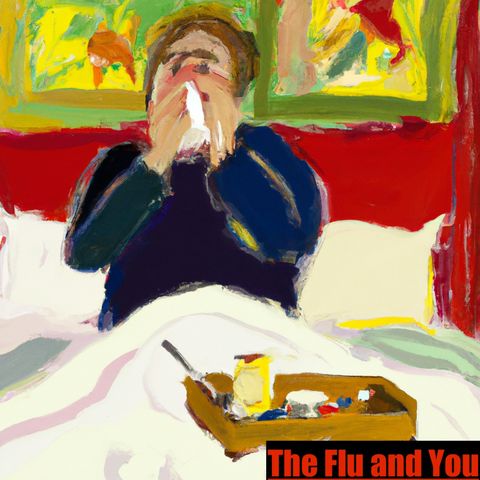The Flu and You!

Nov 29, 2023 ·
3m 5s
The influenza virus, commonly known as the flu, is a contagious respiratory illness that causes mild to severe illness, and at times can lead to death. Characterized by fever, cough,...
show more
The influenza virus, commonly known as the flu, is a contagious respiratory illness that causes mild to severe illness, and at times can lead to death. Characterized by fever, cough, sore throat, and other symptoms, the flu can spread from person to person through respiratory droplets produced when an infected person coughs or sneezes. Understanding the Flu Virus The influenza virus is categorized into three main types: A, B, and C. Influenza A and B viruses are responsible for the annual flu epidemics, while influenza C viruses typically cause mild, illness similar to the common cold. Symptoms of the Flu The flu typically begins with a sudden onset of symptoms, including:
show less
- Fever
- Cough
- Sore throat
- Runny or stuffy nose
- Muscle or body aches
- Headaches
- Fatigue (tiredness)
- Some people may also have vomiting and diarrhea, though this is more common in children than adults.
- Pneumonia
- Bronchitis
- Ear infections
- Sinusitis
- Dehydration
- Worsening of chronic health conditions
- Frequent handwashing with soap and water or an alcohol-based hand sanitizer
- Covering your mouth and nose when coughing or sneezing
- Avoiding close contact with sick people
- Staying home when you are sick
- Rest
- Plenty of fluids
- Over-the-counter pain relievers
- Fever reducers
- Difficulty breathing or shortness of breath
- Bluish lips or face
- Persistent vomiting or diarrhea
- Fever in a child under 2 months old
- Fever of 103°F (39.4°C) or higher in an older child or adult
Information
| Author | Quiet.Please |
| Website | - |
| Tags |
Copyright 2024 - Spreaker Inc. an iHeartMedia Company
